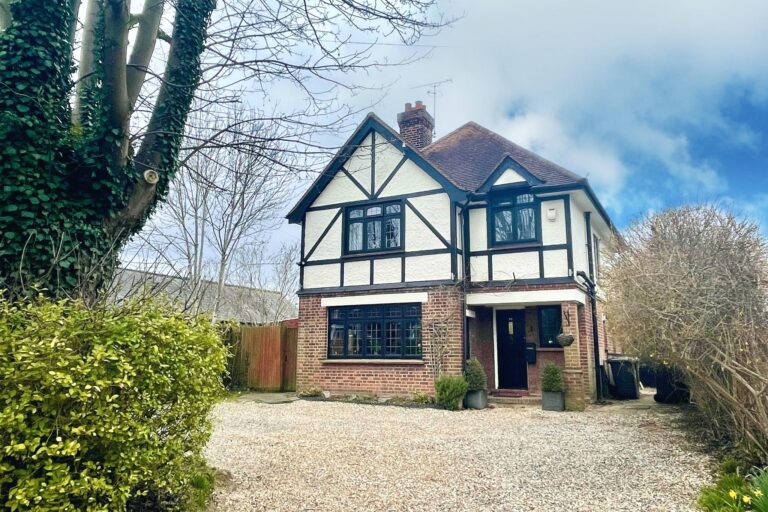
Understanding Mortgage Options: A Guide for First Time Buyers in 2025
Buyers | March 17, 2025 | Wright & Co Estate Agents

Buyers | March 17, 2025 | Wright & Co Estate Agents
Buying your first home is an exciting milestone, but the process of securing a mortgage can feel overwhelming. With so many options available, understanding which mortgage is right for you is crucial to ensuring a smooth and financially sound journey to homeownership. In 2025, prospective buyers face a market that is constantly changing, influenced by economic shifts, regulatory changes, and the rising demand for housing. Below is a simple guide to help first time buyers navigate mortgage options and make informed decisions.
A mortgage is a loan taken out to purchase a property. In essence, it allows you to borrow a significant amount of money from a lender to cover the cost of your home, with the property serving as collateral. Over time, you repay this loan, usually in monthly instalments, which include the principal (the amount you borrowed) and interest (the cost of borrowing the money).
To secure a mortgage, you’ll need a deposit, which is typically a percentage of the property’s price. In the UK, most lenders require a deposit of at least 5% of the property’s value, although having a larger deposit can offer you access to better mortgage rates. Saving for a deposit is often the most challenging part of buying a home, but schemes like the Lifetime ISA can help first time buyers boost their savings with a government bonus.
One of the most common mortgages is the fixed rate mortgage. With this option, your interest rate remains the same for a set period, usually two, five, or ten years. Fixed rate mortgages provide stability, as your monthly payments won’t change during the fixed term, making it easier to budget. This is particularly helpful in uncertain economic times when interest rates may fluctuate. While fixed rate mortgages offer predictability, they might come with higher rates compared to variable options. Additionally, if you want to switch or repay the mortgage early, you may face early repayment charges during the fixed period.
Variable rate mortgages have interest rates that can change over time, influenced by broader market conditions or decisions by the Bank of England. There are several types of variable rate mortgages:
Variable rate mortgages can be beneficial if interest rates fall, potentially reducing your monthly payments. However, they come with the risk of higher payments if rates rise, so they may not be ideal for buyers seeking financial certainty.
For first time buyers struggling to save a large deposit, schemes like Help to Buy and Shared Ownership provide alternative paths to homeownership. While the Help to Buy Equity Loan scheme has ended in England, Shared Ownership remains an option. With Shared Ownership, you buy a share of a property (usually between 25% and 75%) and pay rent on the remaining share. This reduces the size of the deposit you need and can make owning a home more affordable in the short term.
In 2025, sustainability is a growing priority for homeowners and lenders alike. Green mortgages are designed to incentivise energy efficient properties by offering lower interest rates or additional benefits if the home meets certain environmental standards. If you’re buying a new property or planning to make eco-friendly improvements, a green mortgage could be an attractive option.
Securing a mortgage requires careful preparation. Lenders assess your financial health to determine how much they’re willing to lend. Key factors they consider include your income, outgoings, credit history, and the size of your deposit. To improve your chances of approval, it’s essential to check and improve your credit score. Ensure you’re registered on the electoral roll, pay bills on time, and reduce existing debts. Avoid significant spending in the months leading up to your application. You should also gather necessary documentation, such as payslips, bank statements, and proof of identity. Use a mortgage affordability calculator to estimate how much you can borrow.
Navigating the property market and securing the best mortgage deal can be daunting for first time buyers. This is where estate agents and mortgage brokers come in. Estate agents can help you find properties that meet your needs and guide you through the buying process. Mortgage brokers, on the other hand, can compare mortgage deals from a wide range of lenders and help you identify the best option for your circumstances.
Mortgage brokers often have access to exclusive deals and can save you time and effort by managing the application process on your behalf. While some brokers charge a fee, others are paid by the lender, so it’s worth exploring your options.
When budgeting for your first home, it’s important to account for additional costs beyond your deposit. These may include:
Being aware of these costs will help you avoid financial surprises and plan your budget more effectively.
Choosing the right mortgage is one of the most important steps in buying your first home. By understanding the options available and seeking professional advice when needed, first time buyers can make informed decisions that set them up for long term success. For expert guidance and a personalised approach to finding your dream home, Wright & Co is here to help. With years of experience in the property market, their team of knowledgeable estate agents is dedicated to supporting buyers every step of the way. Whether you’re just starting your property search or ready to secure your first mortgage, they have the expertise to make your journey as seamless as possible. Call us on 01279 600400.
Lorem ipsum dolor sit amet, consectetuer adipiscing elit. Donec odio. Quisque volutpat mattis eros.
Lorem ipsum dolor sit amet, consectetuer adipiscing elit. Donec odio. Quisque volutpat mattis eros.
Lorem ipsum dolor sit amet, consectetuer adipiscing elit. Donec odio. Quisque volutpat mattis eros.